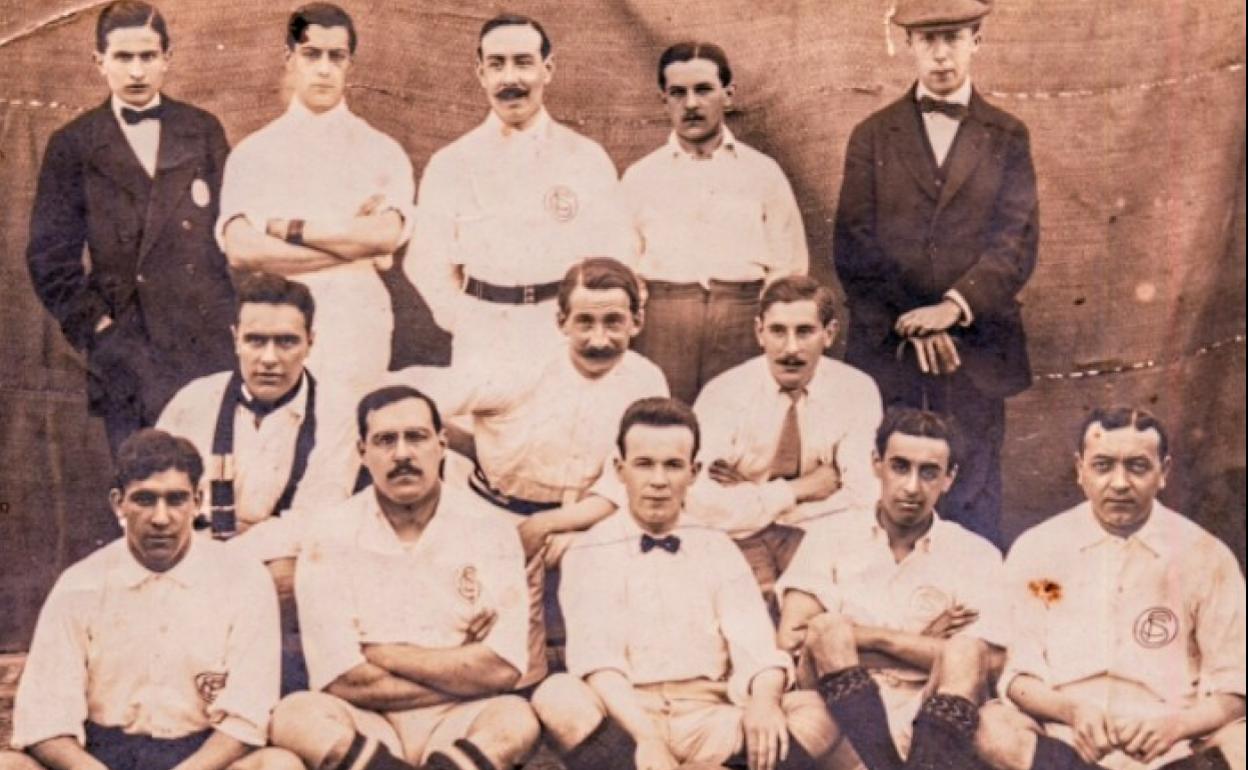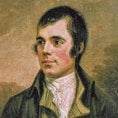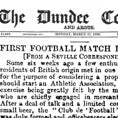

Sections
Highlight

ALEKK M. SAANDERS
Tuesday, 25 January 2022, 11:29
Robert Burns' birthday is special for Andalusian football. Spain's first official football club, and the most prominent club of Andalucía - Sevilla FC - was founded in a café on Burns Night on 25 January 1890.
On 17 March 1890, the Scottish newspaper The Dundee Courier & Argus published news of the birth of the Andalusian club, with two Scots in key positions - captain and president.
At the end of the 19th century Seville had a large British expatriate population due to industrial and commercial collaboration. Burns Night was marked in the city and the celebration 132 years ago went down in the history books. After a lively conversation over beer, an enthusiastic group of Brits, mainly Scots, along with other young men of Spanish origin, formed the first Spanish football club.

The Dundee Courier & Argus published the following on 17 March 1890: “Some six weeks ago a few enthusiastic young residents of British origin met in one of the cafés for the purpose of considering a proposal that we should start an Athletic Association, the want of exercise being greatly felt by the majority of us, who are chiefly engaged in mercantile pursuits. After a deal of talk and a limited consumption of small beer, the 'Club de Football de Sevilla' was duly formed and office bearers elected.”

This page from the Scottish newspaper was discovered by researchers from the history department at Sevilla FC only ten years ago. The article, found in the British Library's newspaper archive, was a treasure for the history of Spanish football. It describes in detail how the club in Seville was founded and, more importantly, how it happened 15 years earlier than it had been previously thought.
Officially the club Sevilla was registered on 14 October 1905. But now, that the Scottish newspaper proclaimed the birth of Sevilla FC on 25 January 1890, it is considered one of the oldest football clubs in Europe and the oldest one in Spain. (Recreativo de Huelva, founded one month and two days earlier, on 23 December 1889, was established as a 'recreational' club).
The Sevilla team was roughly half Spanish and half British. It was comprised of owners or managers of manufacturing companies based in the Andalusian capital. Scot Hugh MacColl was elected the club's first captain.
Hugh was born in Glasgow in 1861. In the UK he was educated as a marine engineer. By 1890, Hugh MacColl had moved to Seville to work as the technical manager of Portilla White foundry. He spent six years in Spain, before returning to the UK where he became chairman of Sunderland Burns Club.
Incidentally, in Spain, Hugh changed his name to Hugo and kept it for the rest of his life. Hugo MacColl died on 31 August, 1915, during a holiday in Glasgow, but it is not known where he was buried. In 2007, Sevilla FC visited Glasgow, as a tribute to the club's first captain.
One of MacColl's partners in the Portilla White foundry in Seville, was elected the club's first secretary. Isaias White junior was the son of an English entrepreneur who founded the aforementioned company, one of the major foundries in Spain, in the late 19th century. The house at Calle Bailén where Isaias lived in Seville still exists and is considered the first home of Sevilla FC.
It is believed it was Isaias White who came up with an idea to celebrate the foundation of the club by playing a football match against the Huelva team.
White sent a letter to Huelva Recreation Club, to invite them to play a football match in Seville. That letter was published by the Spanish newspaper La Provincia. The Huelva club accepted the invitation and the match took place on 8 March 1890, becoming the first official match ever played in Spain.
Sevilla FC won that historic game 2-0, with the first goal in an official match in Spanish football history scored by the Sevilla player Ritson. It appears that later the match in Seville was highlighted in the London newspaper The Field.
The club's first president was also Scottish. Edward Farquharson Johnston was born in Newmill, Elgin, on 14 October 1854. Edward began his studies at Weston House, a prestigious educational establishment in his home town (where he was to meet Alexander Graham Bell). Edward F. Johnston completed his academic education at Mill Hill, a famous English public school near London. He began his professional career by joining the London shipping company of Messrs Robert McAndrew & Co, who were directly related to his family on his mother's side.
Edward F. Johnston was sent to Seville as a representative of the McAndrews shipping company in the early 1870s. The company had established an important trade line between Seville and Scotland via the port of Dundee, where they shipped tonnes of bitter oranges for the manufacture of their famous marmalade.
In 1879, Johnston married Mary Crombie and the couple had three children, all born in Seville. The first son, Gilbert, died in infancy. Their second son, Edward John, died in the trenches in France during the World War I. The third son, James, joined his father in business.
On 23 January 1879, Edward F. Johnston was appointed British vice-consul in Seville until his retirement on 5 October 1906. From the outset, he became a prominent figure in the social and economic life of Seville, though he gained more fame as founding president of Sevilla FC. It appears that Edward Johnston returned to Britain and died in London on 24 June 1924.
Publicidad
Publicidad
Publicidad
Publicidad
Esta funcionalidad es exclusiva para registrados.
Reporta un error en esta noticia

Debido a un error no hemos podido dar de alta tu suscripción.
Por favor, ponte en contacto con Atención al Cliente.

¡Bienvenido a SURINENGLISH!

Tu suscripción con Google se ha realizado correctamente, pero ya tenías otra suscripción activa en SURINENGLISH.
Déjanos tus datos y nos pondremos en contacto contigo para analizar tu caso

¡Tu suscripción con Google se ha realizado correctamente!
La compra se ha asociado al siguiente email
Comentar es una ventaja exclusiva para registrados
¿Ya eres registrado?
Inicia sesiónNecesitas ser suscriptor para poder votar.